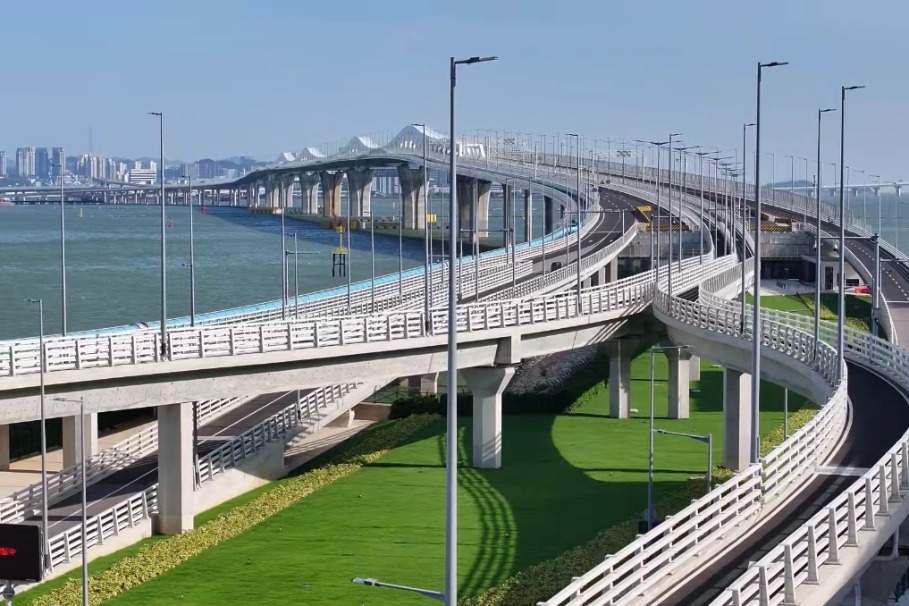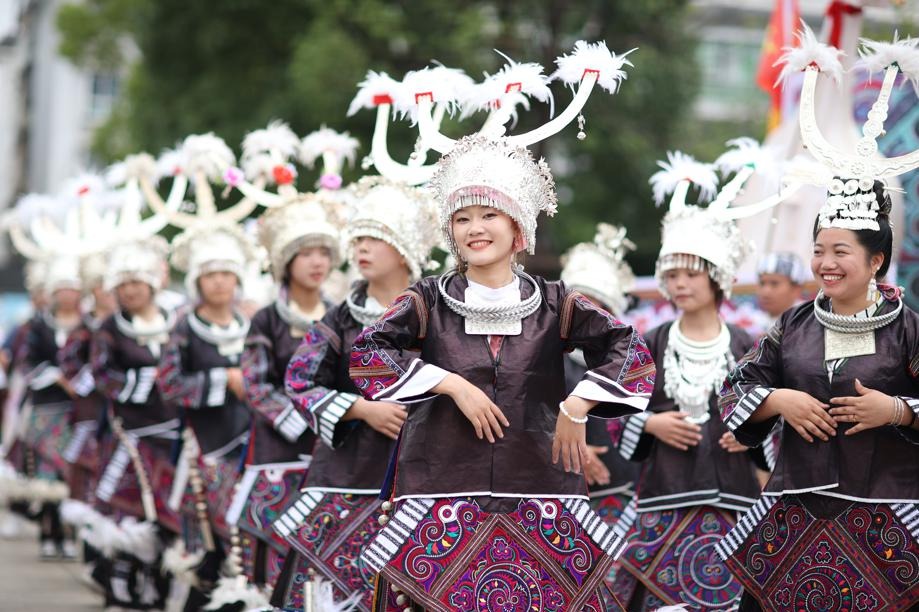China praised for climate financial aid
Support empowers developing nations in South-South cooperation framework

Experts and officials from both domestic and international spheres have praised China's voluntary financial support to developing nations within the South-South cooperation framework, highlighting it as a testament to the largest developing nation's role as a significant and responsible world power.
Since 2016, China has provided and mobilized more than 177 billion yuan ($24.5 billion) of financial support to bolster climate initiatives in other developing countries, Vice-Premier Ding Xuexiang said while addressing the World Leaders Climate Action Summit on Tuesday during the ongoing COP29 climate change conference in Baku, Azerbaijan.
The United Nations gathering of nearly 200 countries opened on Nov 11 and is slated to conclude on Nov 22.
According to China's Actions for South-South Cooperation on Climate Change report, which was unveiled during an event at the COP29 China Pavilion on Friday, the financial support provided by the nation has facilitated clean and efficient energy use, strengthened adaptation capacity, promoted the coordination of climate change response and environmental protection, and improved the livelihoods in developing countries.
The report, compiled by the BRI International Green Development Coalition, cited the De Aar Wind Power Project in South Africa as an example. It is the largest operational wind power project in South Africa and the first on the African continent to be funded, developed and operated by China.
Since its launch in 2017, the project has delivered 760 million kilowatt-hours of reliable, clean electricity annually.
Meeting the electricity needs of 300,000 households, the output has saved the equivalent of 215,800 metric tons of standard coal and has reduced carbon dioxide emissions by 619,900 tons per year.
Zhang Jianyu, chief development officer of the coalition, said the report's findings were derived from statistics pertaining to specific projects undertaken by the Chinese government and State-owned companies, excluding those from the private sector.
Notably, the statistics do not include China's commitment of 780 billion yuan in new financing for the Belt and Road Initiative in 2023, nor do they include the 360 billion yuan in financial support that the country has pledged to African countries over the next three years.
"It represents an incomplete statistic," he stressed.
Emphasizing the core tenet of common but varied responsibilities within the United Nations Framework Convention on Climate Change and its Paris Agreement, Zhang said the developed nations have an obligation to provide financial resources to support developing countries.
The key task of COP29 is to establish a New Collective Quantified Goal, which represents a post-2025 climate financing commitment from developed states to developing economies.
Ding's announcement showed the global community that China is a responsible major power in the global climate process, Zhang said.
He said China strictly adheres to the global consensus in the Paris Agreement regarding the differentiation of national responsibilities in light of national conditions.
"China will shoulder its responsibilities but will not assume those that are not rightfully imposed," Zhang said.
Wang Yi, vice-chair of China's National Expert Panel on Climate Change, said: "In the face of shared challenges posed by climate change, China voluntarily contributes a substantial amount of funding. This voluntary gesture, aligned with respective capacities, stands as evidence of China's significant contributions."
China's financial support within the South-South cooperation framework is a unilateral decision, independent of negotiations under the UNFCCC, he said.
Nigeria's Minister of Environment Balarabe Abbas Lawal emphasized that developed countries, being the foremost contributors to carbon emissions, possess significant resources and expertise to help address the climate challenges faced by developing nations.
"Developed countries are the biggest emitters. And we in the Third World, or in the developing countries, are the ones that suffer the most in terms of these climate change repercussions," he said.
Lawal said he "strongly" believes that developed countries have a lot to offer, including funds, technology and capacity building, to help developing nations.
But on Friday, COP29 witnessed China, rather than a developed country, reach a memorandum of understanding with Nigeria.
According to their agreement, the two countries will jointly build a low-carbon demonstration zone in the African state.
Noting that China has also signed agreements with many other African nations, the minister said: "China is a country that understands what we are going through because they have gone through it. So they know what it is and they know how it hurts, and they are in a position to lead in that area."



































